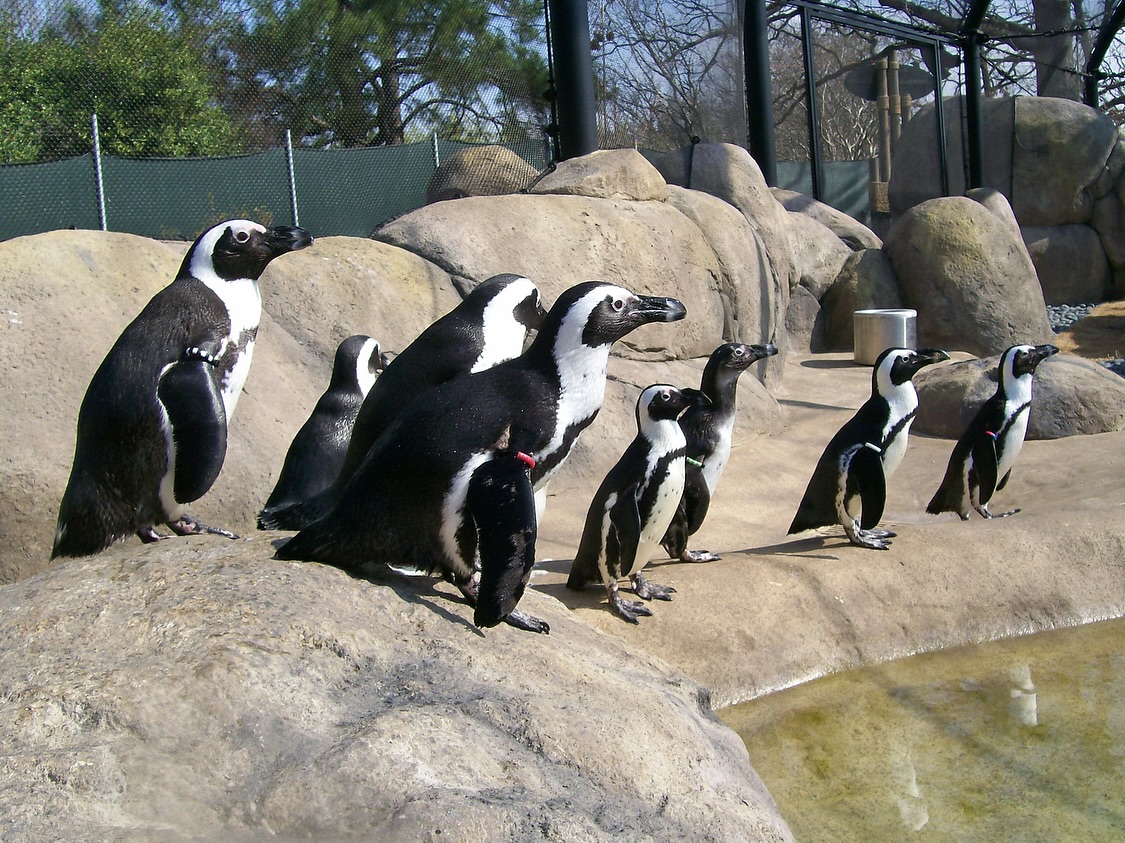- The unique adaptations and behaviors of African penguins that contribute to their survival in a warm climate.
- The current conservation status of African penguins and the efforts to protect them from extinction.
- The role of zoos, such as the Little Rock Zoo, in conservation and education initiatives for African penguins.
- Details about World Penguin Day and its importance in raising awareness for penguin conservation efforts.
- How individuals can contribute to the conservation and protection of African penguins and their habitat.
African penguins, also known as Spheniscus demersus, display fascinating adaptations that allow them to thrive in the temperate climates of southern Africa. Unlike their Antarctic counterparts, these birds have evolved to withstand warmer environments found along the rocky coasts of South Africa and Namibia. One of their notable features is the black and white plumage, which not only aids in camouflage but also serves as protection against predators in the aquatic ecosystem. The distinctive black markings on their chest are unique to each individual, akin to human fingerprints, allowing researchers to identify and monitor specific birds within a colony.
These penguins possess a variety of adaptations that facilitate survival in their environment. Their streamlined bodies and strong flippers enable them to swim at speeds of up to 15 miles per hour and dive as deep as 400 feet in pursuit of fish, their primary diet. When on land, their iconic waddle is actually a sturdy gait adapted to navigating the rugged shorelines and rocky outcrops of their coastal habitats. Additionally, African penguins are equipped with a gland above their eyes that helps to expel excess salt from their bodies, a critical adaptation for consuming seawater.
Sadly, African penguins are classified as a critically endangered species. The population has dramatically declined due to several threats, including overfishing, habitat destruction, and oil spills. Overfishing depletes their primary food sources, leading to increased competition for limited resources. Habitat destruction, particularly the removal of guano—a vital component for nesting—has significantly impacted breeding success. Oil spills pose a lethal threat by impairing waterproofing and insulating properties of their feathers, leading to hypothermia or poisoning from ingesting the oil while preening.
Conservation efforts are essential to mitigate these threats and support African penguin populations. Organizations are actively involved in habitat restoration, such as re-establishing nesting sites and managing artificial colonies to boost reproductive success. Stricter regulations on fishing near penguin habitats and increased surveillance to prevent illegal activities also contribute to conservation strategies. Educational campaigns and research initiatives further enhance public awareness and understanding of these birds and the urgent need to protect them.
Zoos play an integral role in the conservation and education of African penguins. The involvement of institutions like the Little Rock Zoo in breeding programs and genetic research aids in maintaining a healthy captive population, which could act as a reservoir for future reintroduction efforts. These zoos provide an opportunity for the public to engage with and learn about these fascinating birds firsthand. Interactive exhibits and educational programs often emphasize the penguins’ plight, inspiring visitors to support conservation efforts and make informed choices that benefit wildlife.
World Penguin Day, celebrated annually on April 25, serves as a reminder of the importance of penguin conservation. It is an opportunity to raise awareness about the threats faced by various penguin species and the conservation strategies employed to safeguard their future. Events organized around this day often include talks by conservationists, special exhibits, and activities designed to engage the community and foster a connection with these extraordinary birds.
Individuals can also contribute to the conservation of African penguins. Supporting organizations dedicated to wildlife conservation through donations or volunteering can make a significant impact. Adopting sustainable practices, such as choosing seafood from certified sustainable sources, helps reduce the pressure on fish populations that penguins rely on. Spreading awareness about the challenges penguins face and advocating for policies that protect their habitat can amplify conservation efforts globally.
In summary, African penguins possess remarkable adaptations that enable them to survive in their native habitats. Despite facing significant threats that endanger their populations, collaborative conservation efforts offer a glimmer of hope. With the support of zoological institutions, awareness events like World Penguin Day, and individual contributions, there is potential to secure a more stable future for these captivating creatures.
*****
Source Description
Penguins are some of the most beloved birds on the planet, known for their adorable waddles and impressive swimming skills. At the Little Rock Zoo, we’re proud to be home to a colony of African penguins—a warm-weather species native to the rocky shores of southern Africa. These penguins are a critically endangered species, and we’re excited to share their story with you! 🐧
Join us on Friday, April 25 to celebrate World Penguin Day and learn more about these incredible birds!


